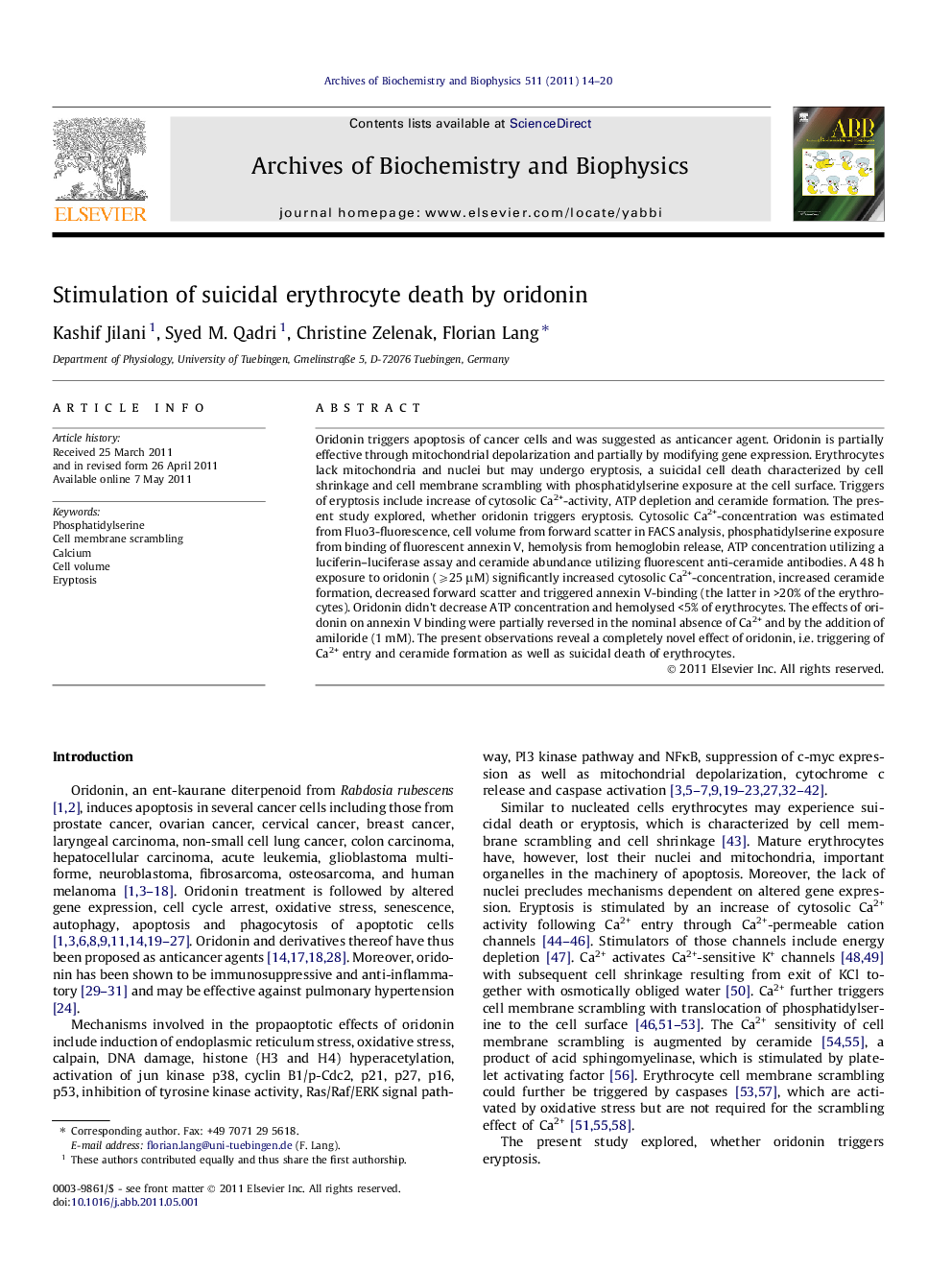| Article ID | Journal | Published Year | Pages | File Type |
|---|---|---|---|---|
| 1925696 | Archives of Biochemistry and Biophysics | 2011 | 7 Pages |
Oridonin triggers apoptosis of cancer cells and was suggested as anticancer agent. Oridonin is partially effective through mitochondrial depolarization and partially by modifying gene expression. Erythrocytes lack mitochondria and nuclei but may undergo eryptosis, a suicidal cell death characterized by cell shrinkage and cell membrane scrambling with phosphatidylserine exposure at the cell surface. Triggers of eryptosis include increase of cytosolic Ca2+-activity, ATP depletion and ceramide formation. The present study explored, whether oridonin triggers eryptosis. Cytosolic Ca2+-concentration was estimated from Fluo3-fluorescence, cell volume from forward scatter in FACS analysis, phosphatidylserine exposure from binding of fluorescent annexin V, hemolysis from hemoglobin release, ATP concentration utilizing a luciferin–luciferase assay and ceramide abundance utilizing fluorescent anti-ceramide antibodies. A 48 h exposure to oridonin (⩾25 μM) significantly increased cytosolic Ca2+-concentration, increased ceramide formation, decreased forward scatter and triggered annexin V-binding (the latter in >20% of the erythrocytes). Oridonin didn’t decrease ATP concentration and hemolysed <5% of erythrocytes. The effects of oridonin on annexin V binding were partially reversed in the nominal absence of Ca2+ and by the addition of amiloride (1 mM). The present observations reveal a completely novel effect of oridonin, i.e. triggering of Ca2+ entry and ceramide formation as well as suicidal death of erythrocytes.
► The antineoplastic agent oridonin triggers eryptosis, the suicidal death of erythrocytes. ► Oridonin induced eryptosis is characterized by cell shrinkage and cell membrane scrambling. ► Oridonin is effective despite the lack of mitochondria and nuclei in erythrocytes. ► Oridonin enhances cytosolic Ca2+ and oridonin induced eryptosis is blunted by Ca2+ removal. ► Oridonin triggers formation of ceramide, which sensitizes erythrocytes to effects of Ca2+.
